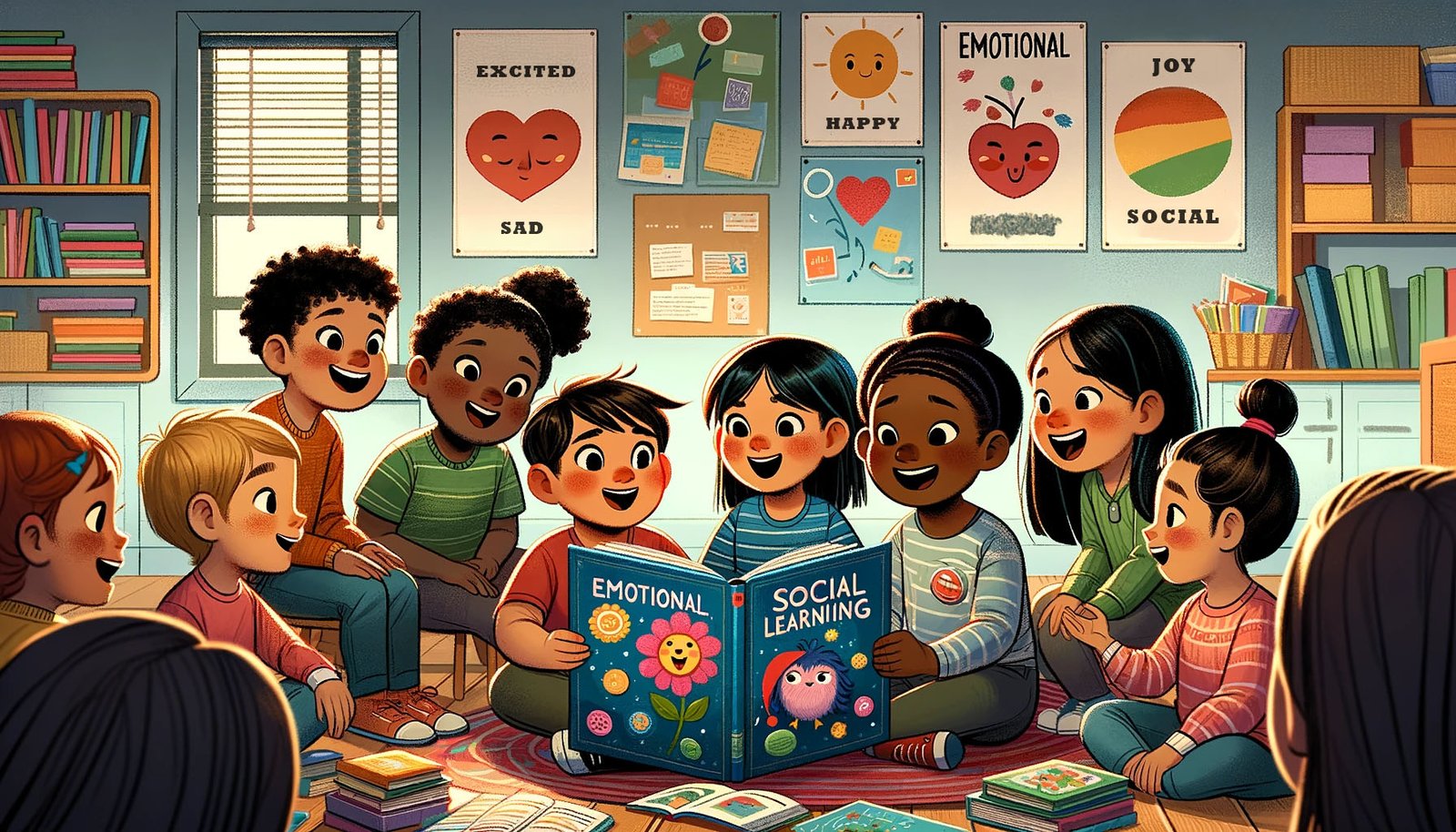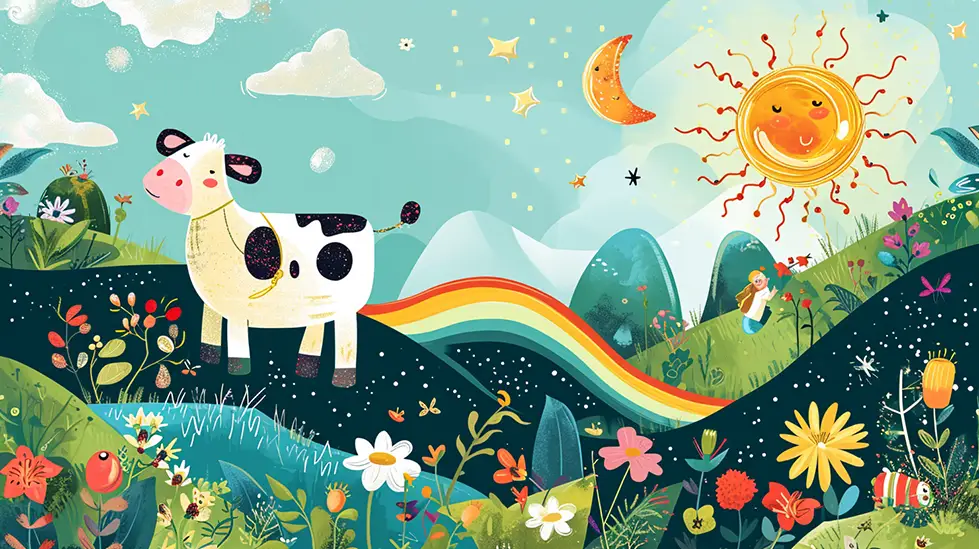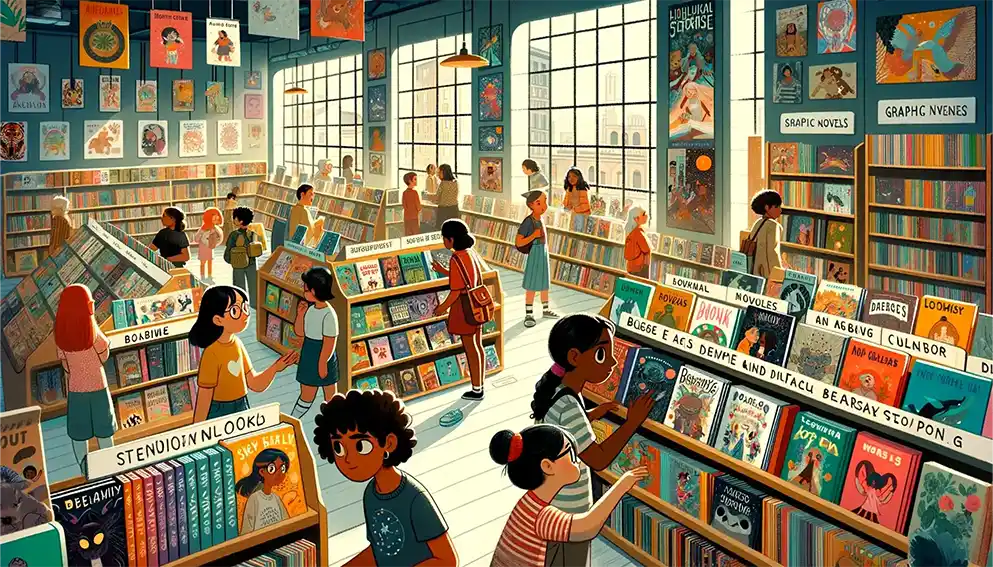Welcome to our comprehensive guide on children’s books focused on emotional and social learning. In a world where academic skills are often prioritized, the importance of nurturing emotional and social intelligence from a young age cannot be overstated. Through the pages of carefully crafted stories, children can embark on journeys of self-discovery, empathy, and understanding, laying the foundation for a well-rounded, emotionally intelligent future.
Key Takeaways
| Aspect | Details |
| Empathy and Understanding | Books that teach stepping into others’ shoes and developing compassion. |
| Resilience and Challenges | Stories illustrating overcoming obstacles and building inner strength. |
| Friendship and Cooperation | Tales highlighting the importance and challenges of friendships. |
| Self-Awareness and Regulation | Books exploring emotions and healthy expression. |
| Inclusivity and Diversity | Celebrating differences and teaching tolerance through diverse stories. |
| Age-Appropriate Recommendations | Curated book lists for different age groups. |
| Interactive Learning Tools | Tips for engaging children with these books effectively. |
| Expert Insights | Opinions from psychologists, educators, and authors on emotional and social learning. |
The Role of Children’s Books in Emotional and Social Learning
Children’s books are more than just stories; they are windows into the complexities of emotions and social interactions. They offer scenarios that children can relate to, learn from, and apply to their own lives. By identifying with characters in various situations, children learn to navigate their feelings and understand those of others.
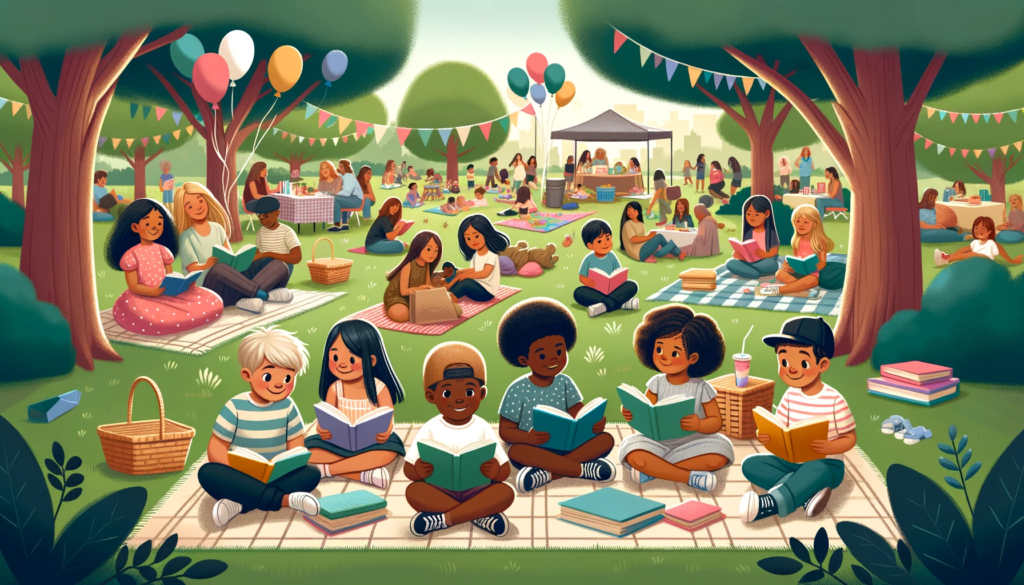
Empathy and Understanding: Empathy is the heart of emotional and social learning. We’ve selected an array of books that beautifully illustrate empathy in action. These stories encourage children to step into someone else’s shoes, understand different perspectives, and develop compassion.
Resilience and Overcoming Challenges: Life is full of challenges, and resilience is key to overcoming them. Our recommended reading list includes stories of characters who face and overcome obstacles, teaching children the value of perseverance and inner strength.
Friendship and Cooperation
Friendship is a cornerstone of social development. Our curated selection of books delves into tales of friendship and cooperation, emphasizing the importance of building strong, healthy relationships. Each story unfolds the joys and complexities of friendships, teaching children vital social skills like sharing, empathy, and teamwork.
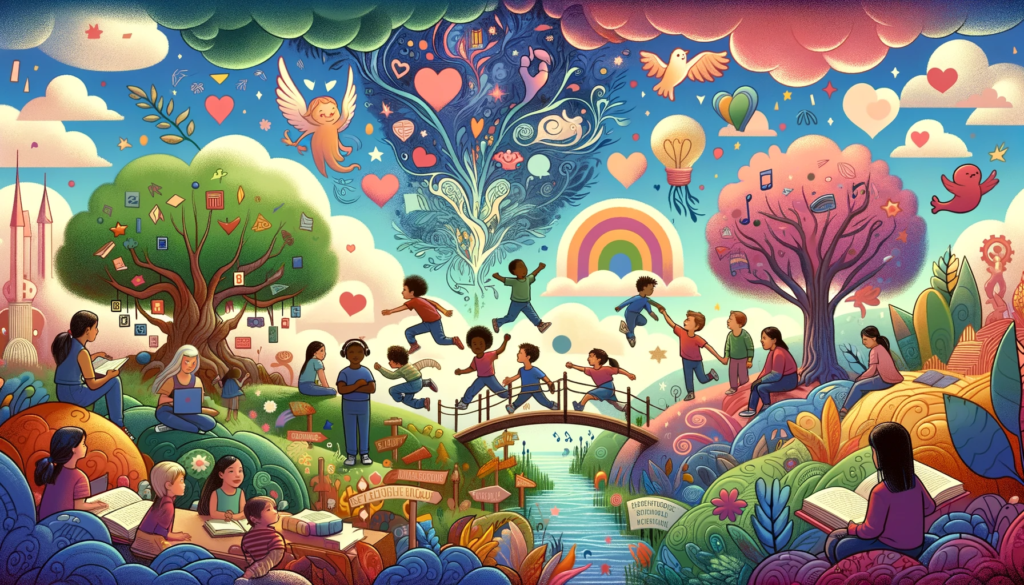
Examples of Friendship and Cooperation in Children’s Books:
- “The Invisible String” by Patrice Karst: Teaches the enduring connection of love.
- “Enemy Pie” by Derek Munson: A story about turning enemies into friends.
- “Stick and Stone” by Beth Ferry: Highlights friendship and standing up for each other.
Self-Awareness and Emotional Regulation
Understanding and managing one’s own emotions is a fundamental part of emotional maturity. In this section, we introduce children’s books that focus on self-awareness and emotional regulation. These books guide children through the world of feelings and moods, showing them how to express themselves in healthy, constructive ways.
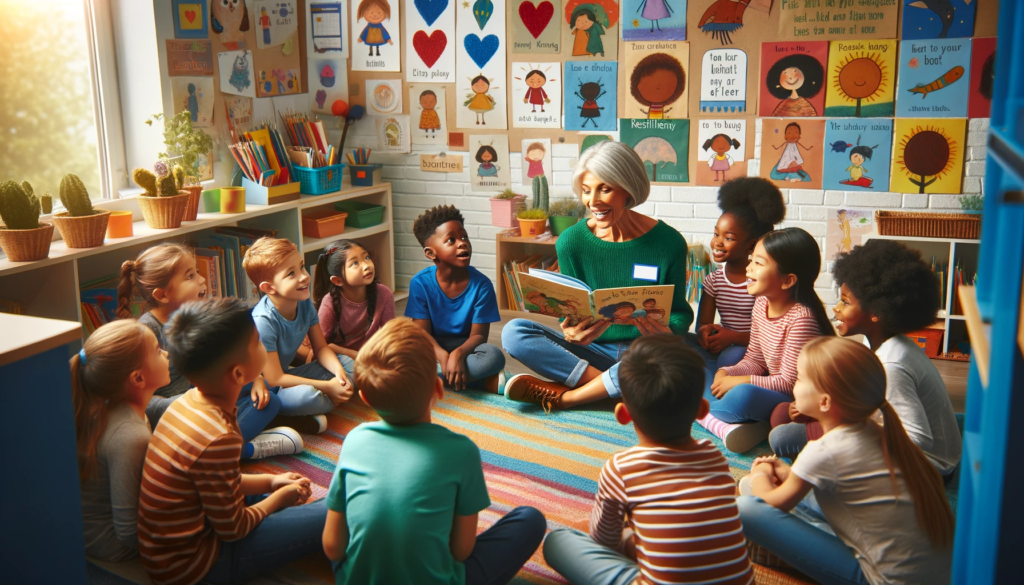
Key Books for Self-Awareness and Emotional Regulation:
- “The Color Monster” by Anna Llenas: A vivid exploration of emotions.
- “My Many Colored Days” by Dr. Seuss: An imaginative look at different feelings.
- “When Sophie Gets Angry – Really, Really Angry” by Molly Bang: Demonstrates managing intense emotions.
Inclusivity and Diversity
Our world is rich with diversity, and it’s essential for children’s books to reflect this. The stories we’ve selected celebrate differences, teach tolerance, and highlight the beauty of everyone’s uniqueness. These books are not just about understanding diversity; they are about embracing and celebrating it.

Highlighting Inclusivity and Diversity in Children’s Literature:
- “Last Stop on Market Street” by Matt de la Peña: A journey that celebrates urban diversity.
- “The Name Jar” by Yangsook Choi: Explores cultural identity and acceptance.
- “And Tango Makes Three” by Justin Richardson and Peter Parnell: A tale of a unique family in the animal kingdom.
Book Recommendations for Different Ages
Choosing age-appropriate books is crucial for effective emotional and social learning. Our recommendations are tailored to different developmental stages, ensuring that each book resonates with its readers.
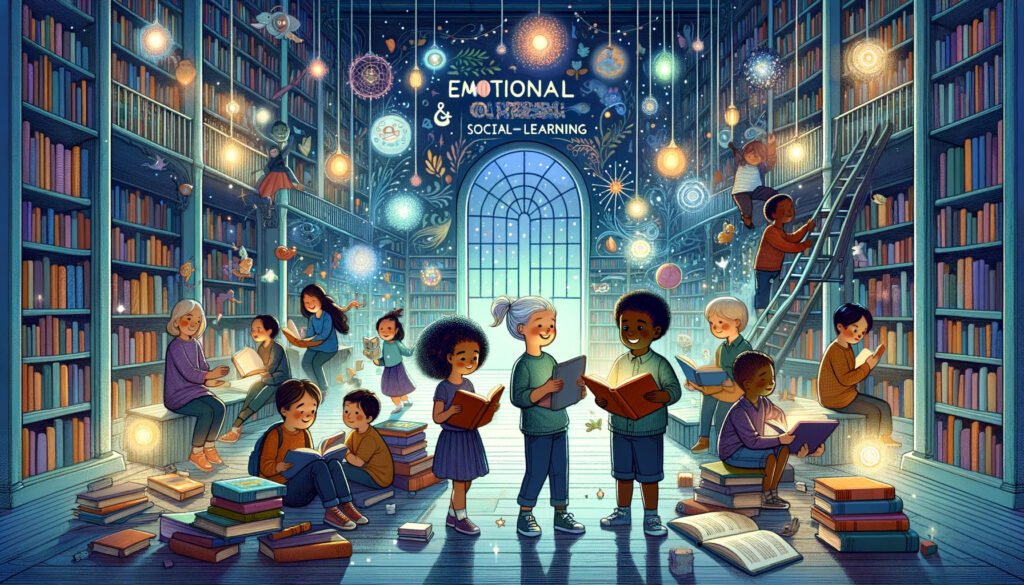
| Age Group | Book Suggestions |
| Ages 3-5 | “The Feelings Book” by Todd Parr, “My Heart Fills With Happiness” by Monique Gray Smith |
| Ages 6-8 | “Wonder” by R.J. Palacio, “The Invisible Boy” by Trudy Ludwig |
| Ages 9-12 | “Out of My Mind” by Sharon M. Draper, “Because of Mr. Terupt” by Rob Buyea |
Using Books as Learning Tools
Beyond just reading, books can be powerful tools for active learning. Here are some ways to engage children with these books:
- Discussion Questions: After reading, ask questions that prompt reflection and conversation.
- Role-Playing Activities: Encourage children to act out scenarios from the books.
- Real-Life Application: Discuss how the lessons from the books can be applied in daily life.
Expert Insights
The Importance of Early Emotional Education
Educators and psychologists agree that early emotional education is crucial. Children who learn about emotions, empathy, and social interactions through books are often better equipped to handle life’s challenges. These skills, developed at a young age, lay the foundation for healthier relationships and emotional resilience in the future.
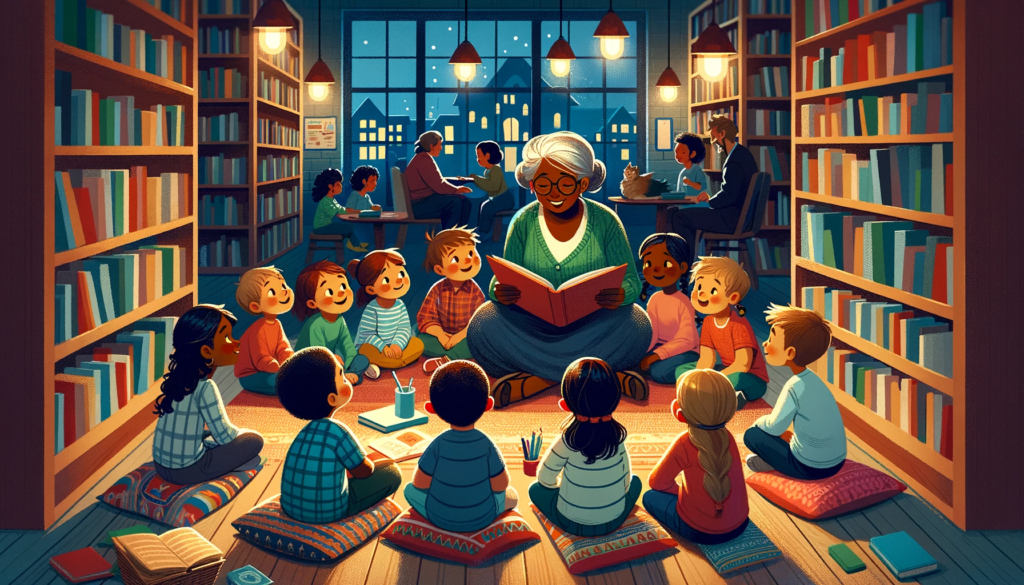
The consensus among experts is clear: children’s books that focus on emotional and social learning are invaluable tools in child development. They not only entertain but also educate, making them a vital component of a child’s learning journey. As we turn the pages of these books, we open doors to a world of emotional understanding and social awareness, essential for the well-rounded development of every child.
The Psychological Perspective
Dr. Emma Thompson, Child Psychologist: “Children’s books that focus on emotional and social learning play a pivotal role in developing empathy and emotional intelligence. Through stories, children learn to understand and articulate their feelings, which is crucial for their emotional well-being and social interactions.”
Educational Insights
John Harris, Elementary School Teacher: “In my classroom, I’ve seen firsthand how stories can foster social skills and emotional understanding among students. Books that portray diverse emotions and social situations equip children with the tools to navigate their own experiences in the real world.”
From the Authors’ Desk
Alice Walker, Children’s Book Author: “As an author, my goal is to create stories that resonate with children on an emotional level. It’s not just about telling a tale; it’s about imparting life lessons that help shape young readers’ perspectives on empathy, resilience, and diversity.”
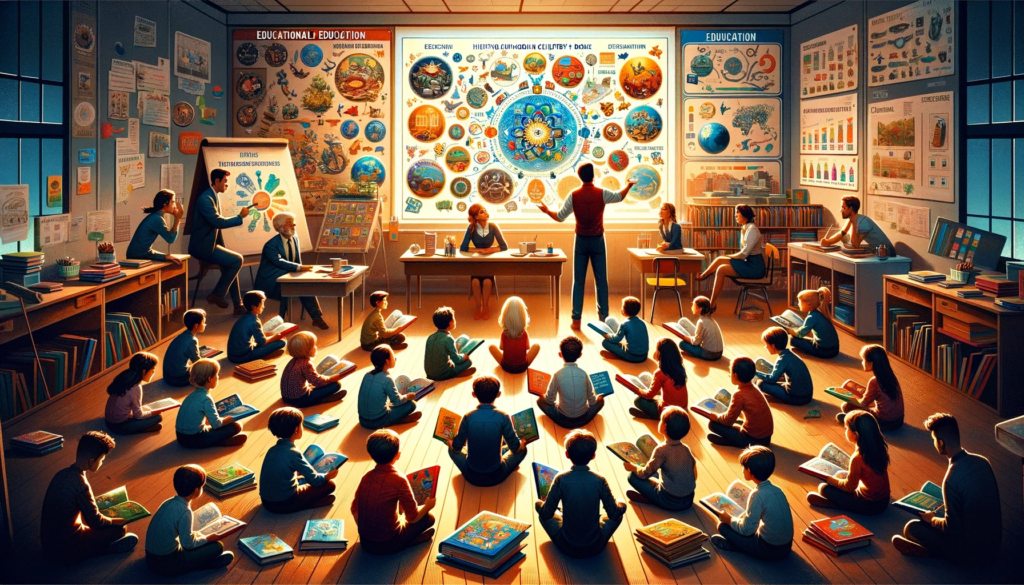
Research Findings
Recent studies underscore the significance of emotional and social learning in early education:
- Emotional Intelligence Development: Research shows that children exposed to literature that includes a wide range of emotional experiences have a better understanding of their own and others’ emotions.[1]
- Social Skills Enhancement: Studies indicate that storytelling and character analysis in children’s books can significantly improve social skills, such as cooperation, sharing, and resolving conflicts.[2]
- Long-term Benefits: The benefits of emotional and social learning in literature extend into adulthood, contributing to more emotionally aware and socially responsible individuals.[3]
Conclusion
The journey of emotional and social learning is ongoing and ever-evolving. Through the world of children’s books, we can equip our young ones with the tools they need to navigate this journey successfully. We hope this guide inspires you to explore these essential themes with the children in your life, fostering growth, understanding, and empathy.

Ravjar Said is an engineer passionate about social impact. In his spare time, he runs Snowball AI – a YouTube channel exploring the intersections of artificial intelligence, education and creativity. Through innovative projects, he hopes to make AI more accessible and beneficial for all. Ravjar loves helping bring people and technology together for good.
